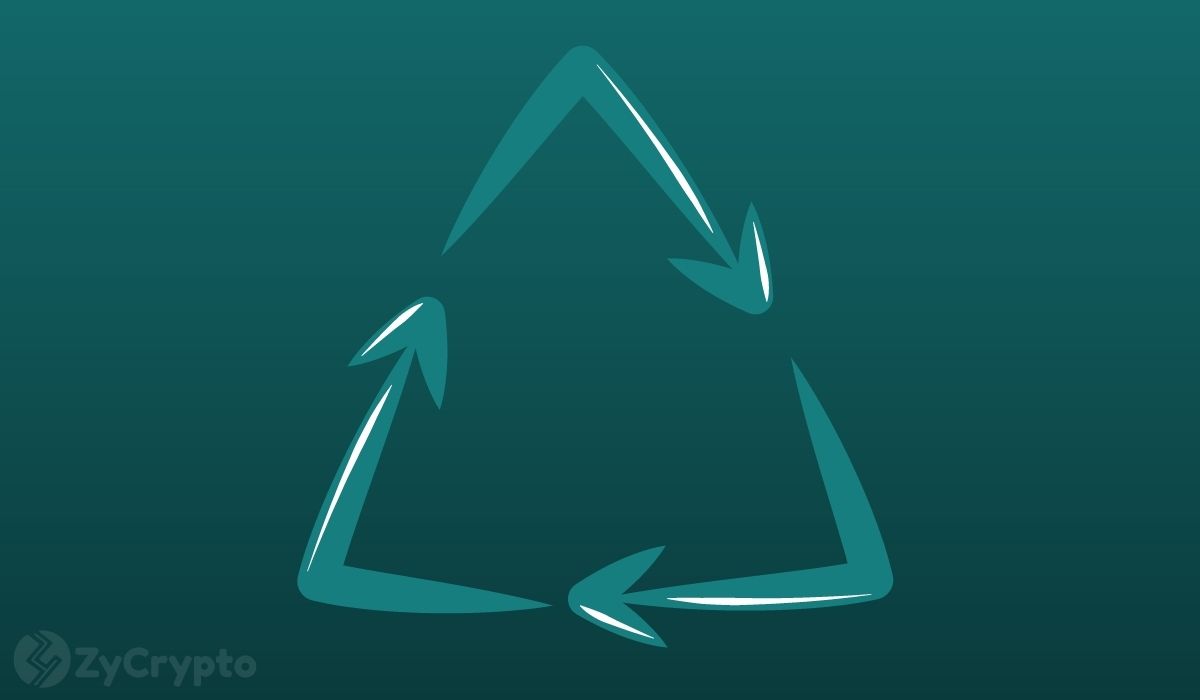Solana co-founder Anatoly Yakovenko (@aeyakovenko) appears to be building a new perpetual exchange protocol called Percolator, according to public code activity on his GitHub.
The project, which is being developed using Claude AI, has sparked wide speculation across the Solana community.
In typical Anatoly fashion, the move wasn’t announced with fanfare. Instead, sharp-eyed developers noticed new commits referencing a “sharded perpetual exchange protocol for Solana.”
A Quiet Experiment, or the Start of Solana’s Next Breakthrough?
Responding to the reports, Yakovenko downplayed the speculation, explaining that he’s simply “experimenting with Claude AI to test ideas.”
He added that he wanted to see if a prop AMM-style competition for perps could work on a decentralized exchange, using one memory slab for liquidity provider (LP) risk management and trade matching, plus a router to rebalance positions efficiently.
Despite his modest description, the community views this as a significant hint of what may come next for Solana DeFi. Percolator’s GitHub framework outlines a scalable architecture for on-chain perpetual futures, emphasizing speed, composability, and deep liquidity, traits that perfectly match Solana’s high-performance design.
Solana’s Deepening Push Into Derivatives
Percolator’s emergence underscores a broader trend within the Solana ecosystem, a growing focus on derivatives trading.
The blockchain already supports several high-performing perpetual DEXs, including Drift Protocol and Jupiter Perps, both of which have seen consistent trading growth. According to on-chain data, derivatives now account for over 30% of Solana’s total trading volume.
With that backdrop, Yakovenko’s involvement could mark a turning point. His technical leadership has historically accelerated Solana’s core innovations, from validator optimizations to proof-of-history mechanisms.
The Percolator repository is open-source, allowing developers to explore, fork, and contribute, a move that invites community participation and faster iteration.
The Technical Vision Behind Percolator
At its core, Percolator appears to test a sharded architecture for perpetual trading.
Sharding could allow parallel execution of contracts, distributing workload across subnets for higher throughput, a challenge that even top-tier PERP DEXs like dYdX and Hyperliquid still face.
The mention of a single memory slab for LP risk and matching suggests a new way to handle capital efficiency. Instead of relying on traditional AMM pools or isolated markets, Percolator may unify liquidity layers while routing risk dynamically between participants.
If successful, that could reduce slippage, improve capital utilization, and lower liquidation risk, three core pain points for current DeFi derivatives platforms.
The on-chain perpetual DEX market has grown aggressively in 2025. According to CoinMarketCap data, Hyperliquid and Aevo now process hundreds of billions of dollars in monthly volume, capturing strong user momentum away from centralized exchanges.
On Solana, Drift Protocol has been one of the ecosystem’s major success stories, regularly surpassing $300 million in daily trading volume, according to DeFiLlama.
That competitive environment leaves room for new innovation, and if Percolator moves beyond the experiment phase, it could offer a unique technical advantage through its sharded architecture and AI-assisted design.
The Role of AI in Blockchain Development
Perhaps the most intriguing aspect of Percolator is how Yakovenko integrates AI into protocol design.
He confirmed that he’s using Claude AI to model and test concepts, a process that could streamline smart contract prototyping and accelerate ideation cycles.
While AI-assisted blockchain development isn’t entirely new, seeing one of Solana’s founders publicly experiment with it signals a shift in how future blockchain protocols might be built, blending human intuition with machine simulation to test trading mechanisms at scale.
Yakovenko’s cautious tone reflects that experimental mindset. “This is not a production project,” he clarified, tempering hype while encouraging technical curiosity.
Still, his direct involvement often fuels ecosystem optimism, and GitHub commits under his name rarely go unnoticed.
Market Context: Solana’s Momentum
Percolator’s appearance comes at a strong moment for Solana overall.
On-chain data shows Solana’s daily active users now rivaling Ethereum, with transaction fees and DEX volume consistently trending upward.
Solana generates around $425 million in monthly fees (annualized over $5 billion), with average transaction costs of just $0.02, a critical edge for high-frequency derivatives trading.
The network’s performance and cost efficiency make it a natural home for perpetual protocols that demand low latency and instant settlement.
Community Response and Speculation
Solana’s community has been quick to discuss the potential impact of Percolator.
On X (formerly Twitter), @SolanaFloor highlighted the discovery of the new GitHub repository, prompting excitement and speculation.
While some users expect a new Solana-native PERP DEX to launch soon, others see it as a thought experiment testing AI-assisted DeFi development. Either way, it’s another reminder that Solana’s ecosystem continues to push the technical frontier, fast, bold, and experimental.
Even if Percolator never evolves into a production-ready exchange, the experiment itself matters.
It reflects the ongoing evolution of Solana’s DeFi infrastructure, where developers are exploring ways to make trading faster, cheaper, and more capital-efficient.
By integrating AI modeling, sharding, and risk-routing ideas into the discussion, Yakovenko is effectively seeding new concepts that other Solana builders might expand upon.
And for users, it reinforces Solana’s image as the most active and experimental blockchain in crypto, where founders still write code, ideas move fast, and open-source development thrives.
Percolator might not be ready for traders yet, but it represents something more valuable, an early look into how AI, DeFi, and high-performance blockchain infrastructure could converge.
Yakovenko’s hands-on experiments remind the community that innovation often starts small, with code, not hype.
As GitHub commits continue and the Solana ecosystem expands, the question isn’t just whether Percolator will launch, but how many future projects it might inspire.
Solana’s founder is building again, and the network is watching closely.
Disclosure: This is not trading or investment advice. Always do your research before buying any cryptocurrency or investing in any services.
Follow us on Twitter @nulltxnews to stay updated with the latest Crypto, NFT, AI, Cybersecurity, Distributed Computing, and Metaverse news!
Source: https://nulltx.com/solana-founder-tests-percolator-a-new-perp-dex-experiment-on-solana/


